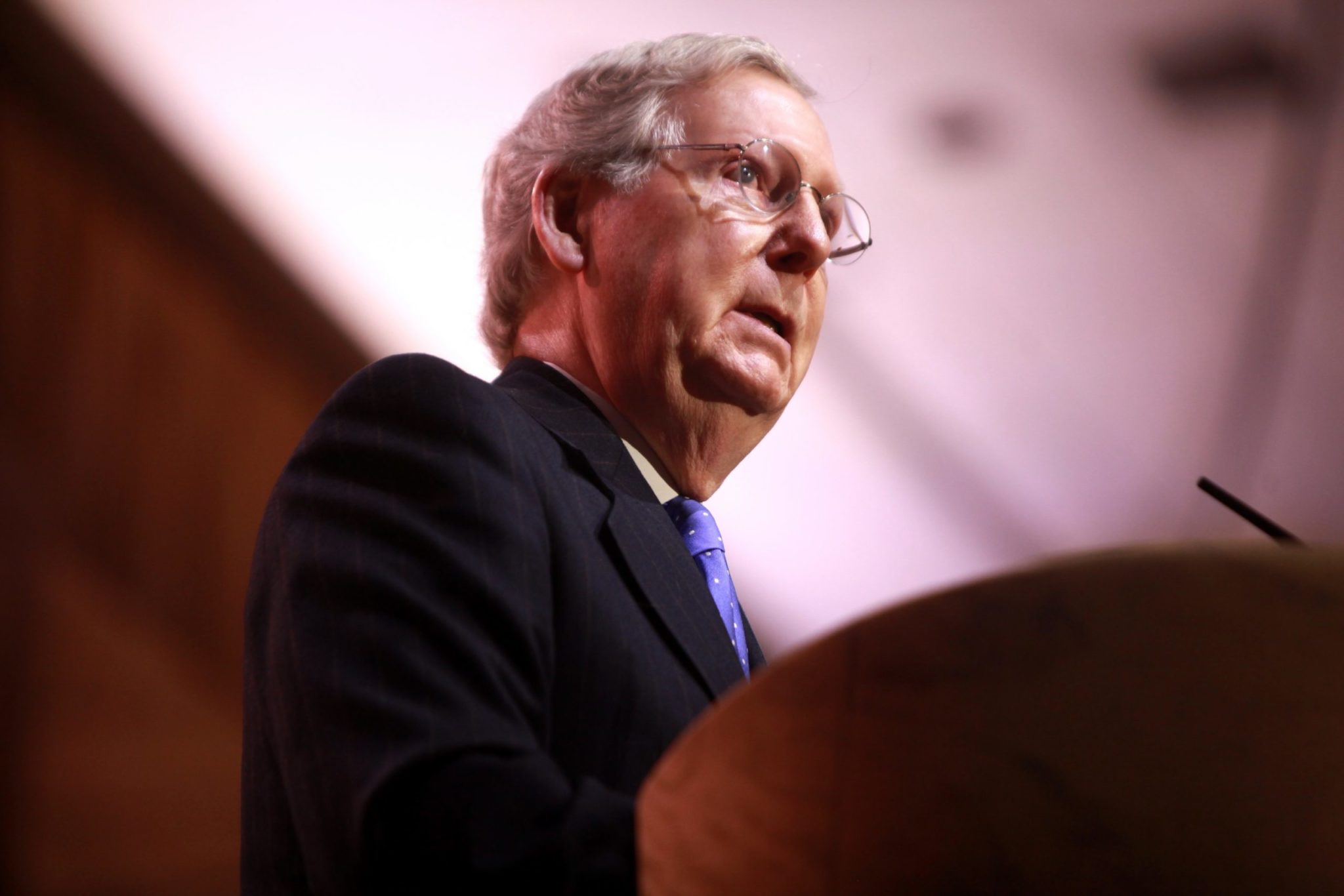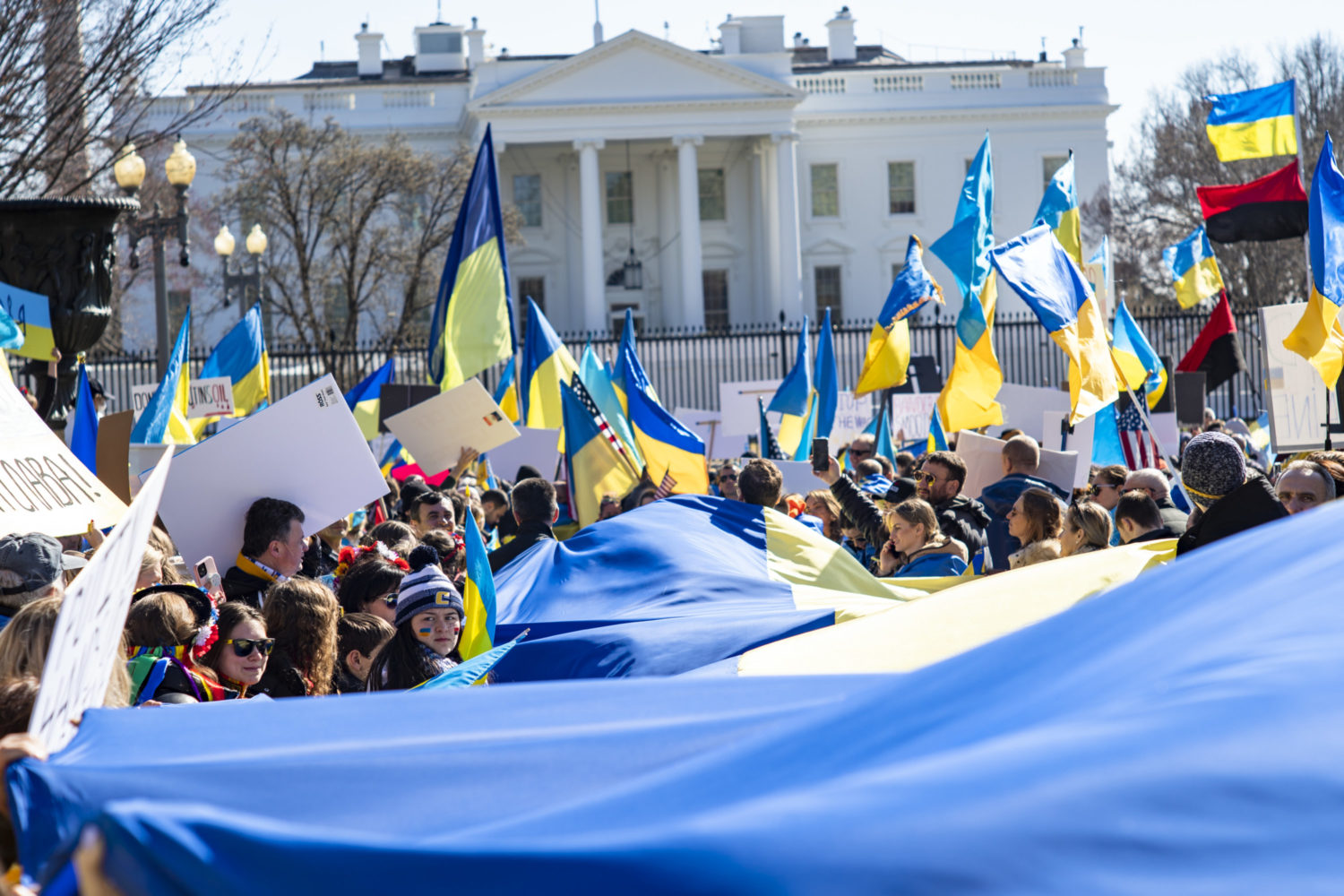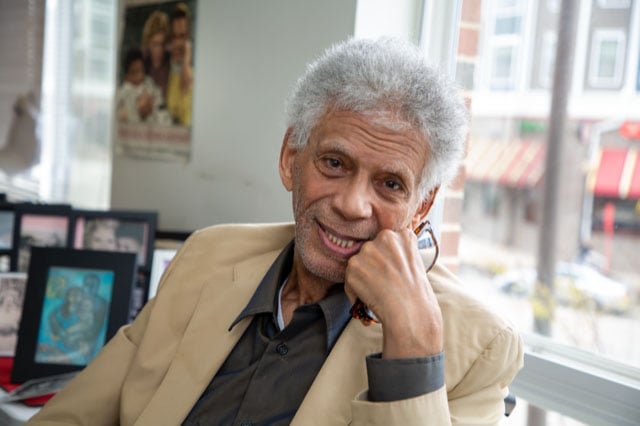It’s been suggested that the life-cycle of a popular Internet meme finally reaches its death stage when Clorox deploys it in a commercial.
This week reminds that the campy Internet rule mentioned above has a fraternal twin: The life-cycle of a political cliché begins as an edgy breakthrough; reaches cruising altitude as a late-night punchline; and comes to die, finally, in a Dana Milbank column.
In this case, the cliché was the provocative headline in Milbank’s Washington Post opinion column—“Mitch McConnell is a Russian asset”—which sent McConnell into a fit on the Senate floor, aided by the tribunes of right-wing media. This, in turn, sparked another surreal diatribe from President Trump, who suggested to reporters that it was the Post, in fact, that was the true Russian asset lurking in our midst.
Importantly, though, the Post’s headline appears to be a new “first” in the Trump era: In 334 instances in which the newspaper discusses intelligence assets—dating as far back to 1978—none I could find insinuate, playfully or otherwise, that an American political figure was in the clutches of an enemy power, regardless of the section of the paper.
That’s a big step, even if Milbank had a righteous point to make, and even if it fell squarely in the remit of commentary. It’s true that McConnell has blocked—outrageously—several efforts to legislate sensible election security measures. This includes the long-overdue policy of requiring paper ballots on voting machines.
But Milbank didn’t say McConnell was equivalent to a Russian asset, or acting like one. He said he was one—on account of “doing Russian President Vladimir Putin’s bidding”—while reassuring readers that this was not a “flip accusation.”
Old intelligence hands raise a bony finger in objection. “To be an ‘asset,’ we have to have a relationship with that person,” says Nicholas Dujmovic, a 26-year CIA veteran who now directs the program in intelligence studies at Catholic University. Dujmovic cycled through the various types of “assets”—espionage assets, covert action assets, assets who run safe houses. In intelligence jargon, at least, Milbank’s use of the term is incorrect. “To call Mitch McConnell an intelligence asset because he does something that seems to coincide with an interest in Russia? I think that’s not a good use of the term,” Dujmovic told me, noting that Eugene Debs, the onetime leader of the Socialist Party of America, would not be considered a Soviet asset. “I think it’s highly inaccurate and misleading,” he went on. “It has nothing to do with intelligence.”
The political accusation of working as a foreign asset isn’t exactly new. The John Birch Society’s founder, Robert Welch, once leveled the charge against President Eisenhower, calling him a dedicated agent of the Communist conspiracy. Thomas Jefferson was once eviscerated for appearing as too accepting of electoral aid from the French.
What’s different now, Dujmovic observed, is the seriousness of the players leveling the same kind of charge—from the pages of the Washington Post to the podium of the Justice Department, where Attorney General William Barr has advanced the baseless notion that “spies” were deployed to infiltrate the Trump campaign. “The word ‘spy’ has all this malevolent connotation attached to it,” Dujmovic noted. In the cases of Barr and McConnell, he observed, both narratives share a conspicuous feature: “Somebody is acting as an ‘agent’ for these malevolent powers.”
What the “Russian asset” micro-scandal reveals, at bottom, is how quickly a vague intelligence term can sprint into the political lexicon as a serious charge, then exit as a dime-store taunt. It began with former CIA Director John Brennan, who claimed Trump was “wholly in the pocket of Putin.” It graduated to Jonathan Chait’s July 2018 New York story that asked readers to consider whether Trump has been “a Russian asset since 1987“—then entered the commonplace banter of cable news, such as when Joe Scarborough asked, “Is he an asset?” (“One-hundred percent,” co-host Mika Brzezinski responded.)
All of which afforded Trump a colossal service: Only in comparison to these profound theories could the plain truth in the Mueller Report—that Trump was using his campaign to advance a multi-million dollar sweetheart deal in Moscow, while lying to the American people about it—appear utterly nondescript by comparison. In the aftermath of a report that should have dealt a Samurai blow to any sitting president, Trump has suffered virtually no political consequences.
The same tactics could boomerang on election security. Undoubtedly, the #MoscowMitch hashtag has brought new urgency to the policy issue of election security—an area I have argued repeatedly is woefully neglected at nearly every stage of government. The public attention, and outcry against Republican obstruction, is long overdue.
But insecure voting machines represented a gross malpractice long before Russian malfeasance, and they will be a gross malpractice long after. Meanwhile, political liberals who are momentarily positioned as the defenders of the intelligence process—contending against Barr’s show-trial rallying cry to “investigate the investigators”—are impetuously throwing away their credibility by politicizing a charge that, just months ago, they were making with grave earnestness to the public. It backfired. Now, should Russia interfere again in 2020—as Robert Mueller warns they will—how will news outlets like the Post identify the culprits? If Mitch McConnell is a Russian asset, then what is Carter Page? Natasha Veselnitskaya?
McConnell’s reported fury at the “Russian asset” charge will bring no small joy to Democrats. His willingness to fundraise off of it, however, should bring trepidation. It suggests that the issue now risks becoming permanently polarized, no matter how 2020 resolves. The wages of a news cycle victory may be long-term defeat.


















